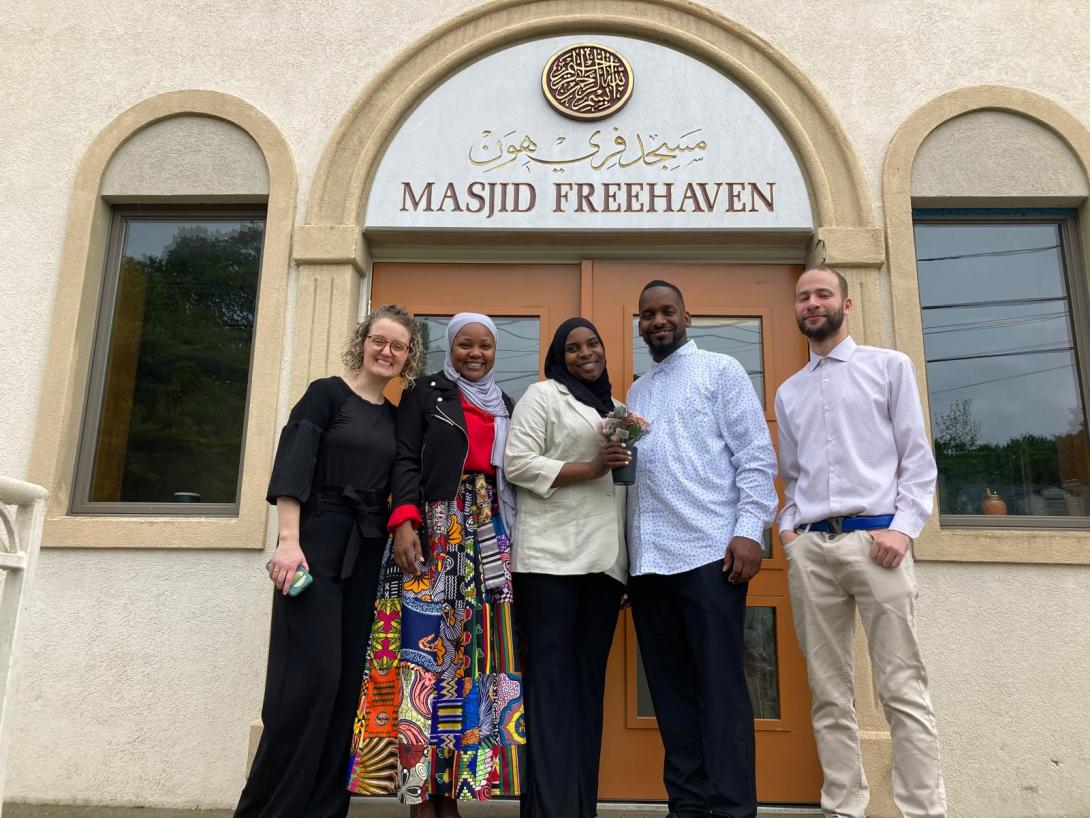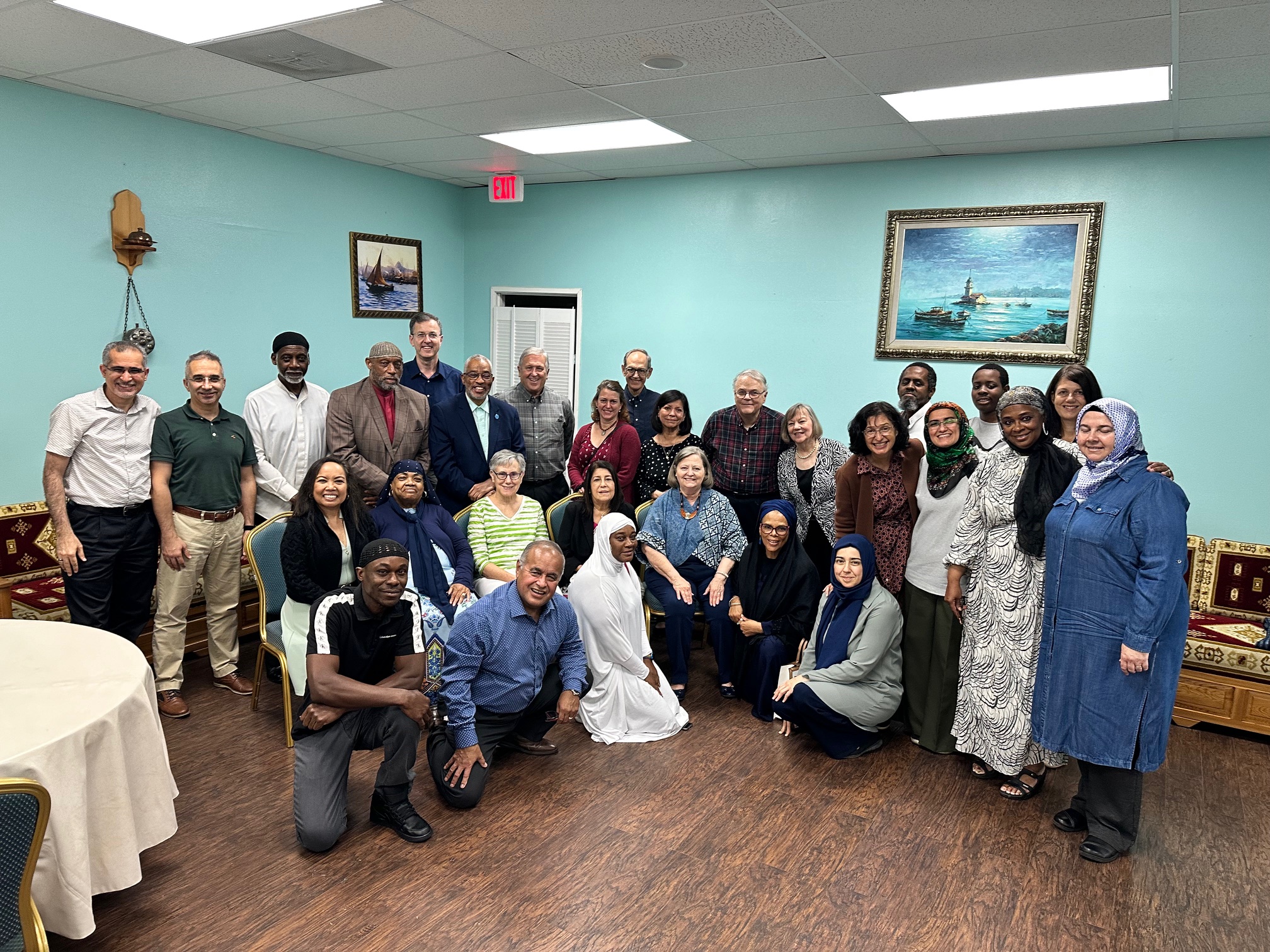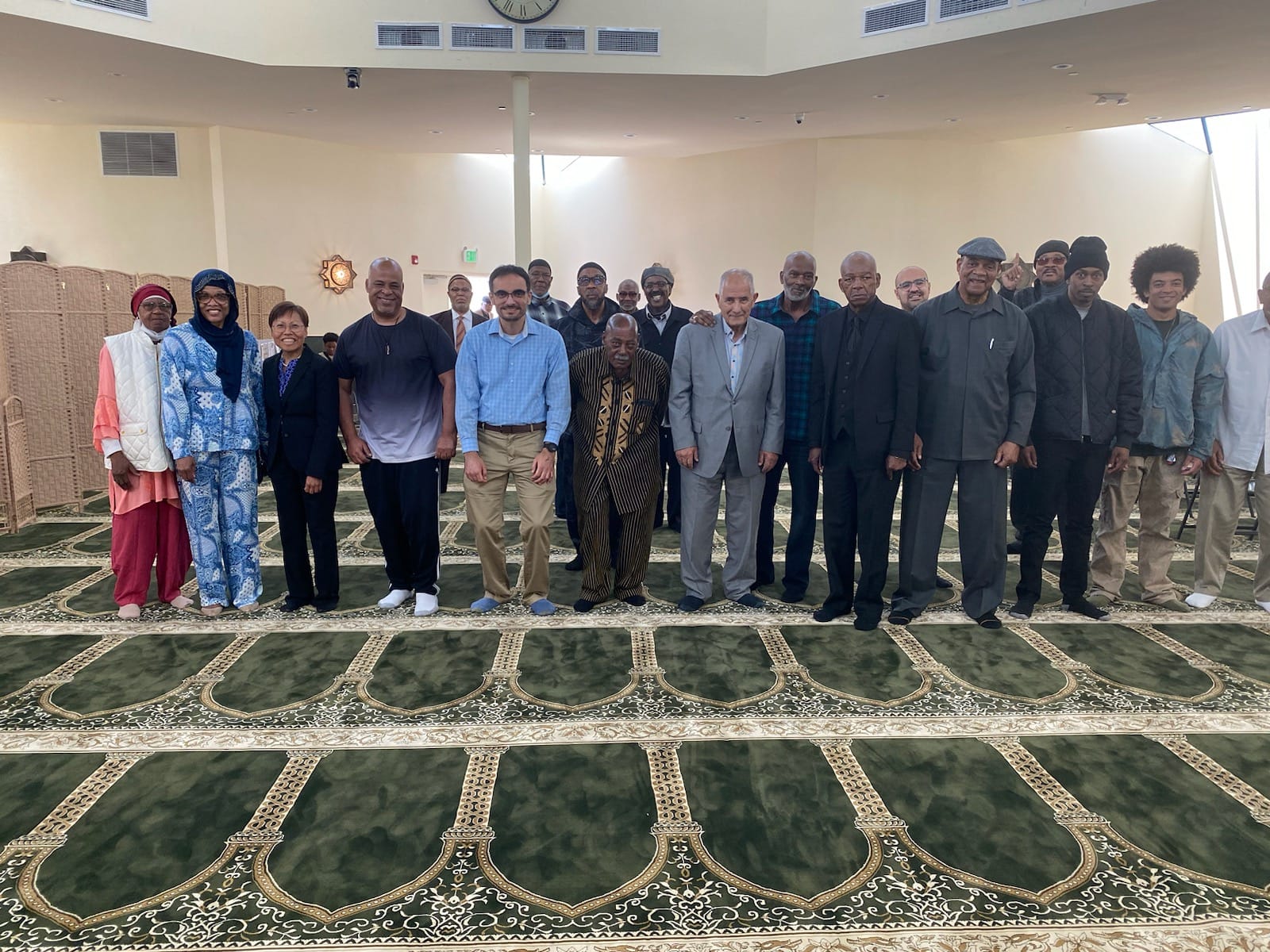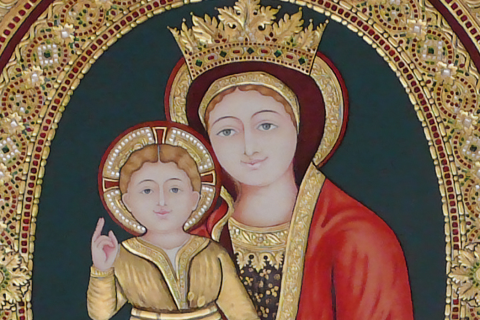
Members of NextNow, a team that has been working together since 2021 to promote Muslim-Christian dialogue at a grassroots level with a specific focus on the legacy of the Pact between Imam Mohammed and Chiara Lubich. © Image courtesy of the Focolare New Jersey community.
On May 5, 2024, Focolare Media, the publishing house of the Focolare Movement, launched its latest book: Roberto Catalano’s The Pact: The Spiritual Friendship between Chiara Lubich and W.D. Mohammed. At twenty-five sites, focolare houses as well as masjids across the US from New York to Oakland, from Detroit to Houston, gathered to rekindle their relationships and to celebrate the Pact their leaders forged twenty-seven years ago. More than 500 people, all total, were gathered from Christian and Muslim communities.
This “Pact” came about on May 18, 1997, when Imam W.D. Mohammed invited Chiara Lubich to the Malcolm Shabazz Mosque in Harlem, New York. He wanted his Black Muslim followers to hear this white Christian woman speak about her spiritual path toward unity, particularly in dialogue with people of other faiths. After her talk, in the imam’s office Lubich spontaneously spoke out: “Imam Mohammed, let’s make a pact, in the name of the one God, to work unceasingly for peace and for unity.” Imam Mohamed responded immediately, “This pact is made forever. May God be my witness that you are my sister. I am your friend and I will help you always.”
Since then, this pact of friendship and this desire to work unceasingly for peace and for unity has brought Focolare and Muslim communities together. The publication of the book provided an occasion to renew their relationship and make concrete plans to continue the work that their leaders had begun.

Gathering of Christians and Muslims in San Antonio for the launch of the book "The Pact".© Image courtesy of the San Antonio Focolare community
In Chicago, Imam Omar A. Karim welcomed Focolare members to his Ephraim Bahar Cultural Center. He described what had brought the Focolare and Muslim communities together. “God chose a people who reflect his attributes of love and mercy. That’s how the chosen ones of God act.” His fellow imam, Tariq El-Amin of Chicago’s Masjid Al-Taqwa noted, “We are one humanity working to please God.”
After an hour of friendly conversation over a buffet meal prepared by Bahar Cultural Center members, the Muslim community and their guests turned their attention to a multi-site live simulcast coordinated by NextNow, a working group of young leaders—Karen Dizon, Sasha Ongtengco, and Kate O’Brien of the Focolare, and Imam Bilal Hasan, Mujahiddeen Mohammed, Muslimah Muhammad, and Marsha Nivins. Masjid Freehaven, in New Jersey, hosted the program, which included segments from sites in Washington DC, Indianapolis, Oakland, San Antonio, Chicago, Detroit, and Pittsburgh.
The main focus was a live interview with Roberto Catalano from his office at Sophia University Institute near Florence, Italy. Catalano explained the historical significance of the Pact. In the 1990s, during the so-called “clash of civilizations” between Islam and the West, the Pact demonstrated the possibility of mutual understanding. The fact that Lubich and Mohammed sealed the Pact just four years before the crisis of 9/11, according to Catalano, “has great significance. Even in the face of such division, it showed that dialogue is possible, and not just any dialogue, but a real brotherly and sisterly dialogue.”
“I was particularly struck,” he said, “by this detail, spoken by the Imam: ‘The Pact is made, and it is forever.’ Forever implies that it must continue. The final section of the book gives hope and evidence that the Pact may continue.” That section, his favorite part of the book, contains a discussion of the Pact and its legacy by members of NextNow.
“God chose a people who reflect his attributes of love and mercy. That’s how the chosen ones of God act.”
According to Catalano, “The great problem we face, all of us who have been followers of great charismatic leaders, is the risk of focusing on what has happened without looking forward, without passing the baton to the next generation.” The May 5 event, he noted “gives hope and evidence that the Pact may continue.”
Responding to a question about why the Pact came about particularly in the US, Catalano explained its local and international significance. “The States are the right place for something like this to have happened. The States are a multi-cultural, multi-ethnic, multi-religious society, in a positive way, but also with lots of tensions. So this Pact gives a great meaning to what the States have gone through historically, and also provides an image to other parts of the world. Apart from being multi-cultural, we can be inter-cultural; apart from being multi-religious, we can be inter-religious. There is the possibility of putting into effect the Golden Rule, really living for one another as brothers and sisters. If God has chosen the United States as the context for a moment like this, there must be a reason. The more the next generation tries to live it, the more we will discover the reason why it happened here.”

Christians and Muslims met in the Masjid Bilal Islamic Center in Los Angeles to remember the pact between Chiara Lubich and Imam W.D. Mohammed. © Image courtesy of the Los Angeles Focolare community
The event concluded with the announcement of three ongoing events designed to keep alive the spirit of brotherly and sisterly dialogue and service that marked the day of the book launch. Every year on May 18, or on the Sunday closest to that date, the Focolare and Muslim communities will celebrate “Pact Day,” a commemoration of the historic agreement between Chiara Lubich and Imam W.D. Mohammed. And each year the communities will join in two days of service—the weekend following Imam Mohammed’s birthday (October 30), and January 22, Chiara Lubich’s birthday.
If you enjoyed this article, you might like...













